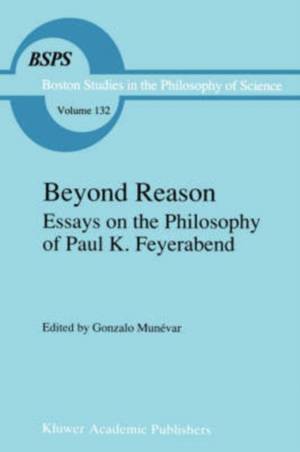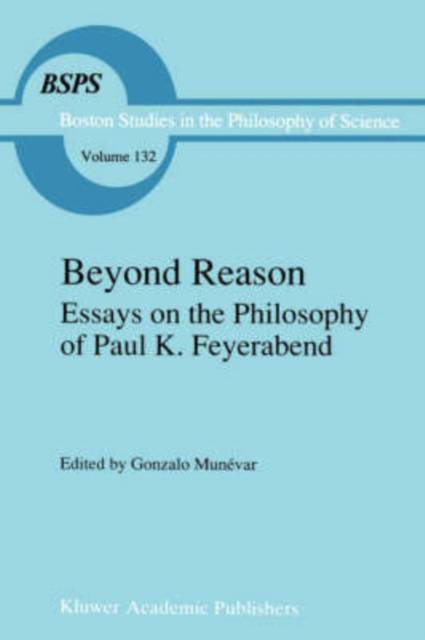
- Afhalen na 1 uur in een winkel met voorraad
- Gratis thuislevering in België vanaf € 30
- Ruim aanbod met 7 miljoen producten
- Afhalen na 1 uur in een winkel met voorraad
- Gratis thuislevering in België vanaf € 30
- Ruim aanbod met 7 miljoen producten
Zoeken
Beyond Reason
Essays on the Philosophy of Paul Feyerabend
€ 349,45
+ 698 punten
Omschrijving
Some philosophers think that Paul Feyerabend is a clown, a great many others think that he is one of the most exciting philosophers of science of this century. For me the truth does not lie somewhere in between, for I am decidedly of the second opinion, an opinion that is becoming general around the world as this century comes to an end and history begins to cast its appraising eye upon the intellectual harvest of our era. A good example of this opinion may be found in the admiration for Feyerabend's philosophy of science expressed by Grover Maxwell in his contribution to this volume. Maxwell, recalling his own intellectual transformation, says also that it was Feyerabend who "confirmed my then incipient suspicions that most of the foundations of currently fashionable philosophy and even a great deal of the methodology to which many scientists pay enthusiastic lip service are based on simple mistake- assumptions whose absurdity becomes obvious once attention is directed at them". And lest the reader thinks, as many still do, that however sharp Feyerabend's attacks upon the philosophical establishment may have been, he does not offer a positive philosophy (a complain made by C.A. Hooker and some of the other contributors), Paul Churchland argues otherwise.
Specificaties
Betrokkenen
- Uitgeverij:
Inhoud
- Aantal bladzijden:
- 538
- Taal:
- Engels
- Reeks:
- Reeksnummer:
- nr. 132
Eigenschappen
- Productcode (EAN):
- 9780792312727
- Verschijningsdatum:
- 30/09/1991
- Uitvoering:
- Hardcover
- Formaat:
- Genaaid
- Afmetingen:
- 152 mm x 229 mm
- Gewicht:
- 993 g

Alleen bij Standaard Boekhandel
+ 698 punten op je klantenkaart van Standaard Boekhandel
Beoordelingen
We publiceren alleen reviews die voldoen aan de voorwaarden voor reviews. Bekijk onze voorwaarden voor reviews.










